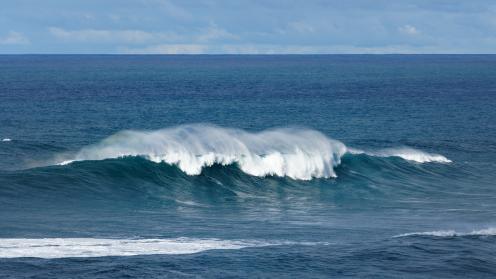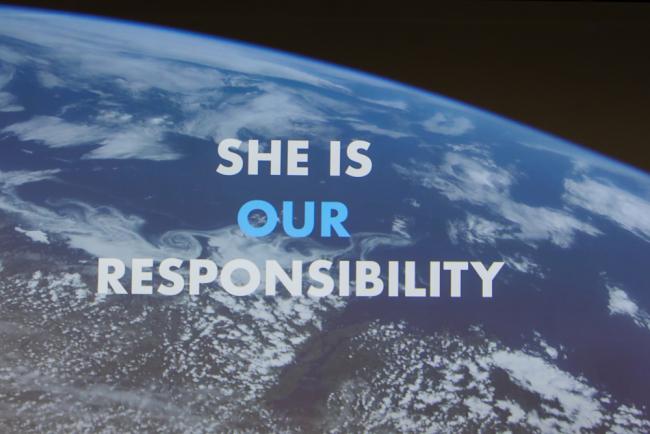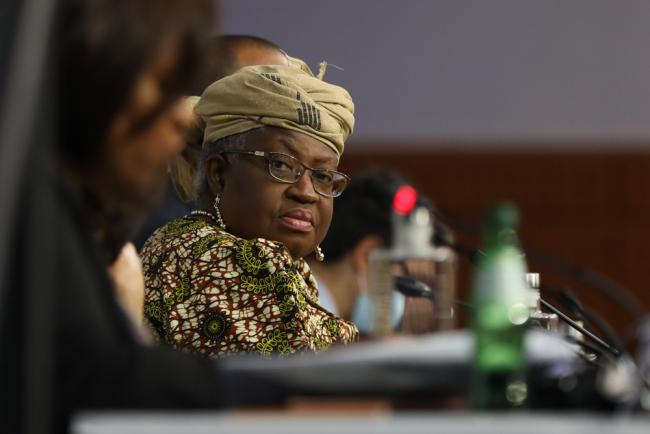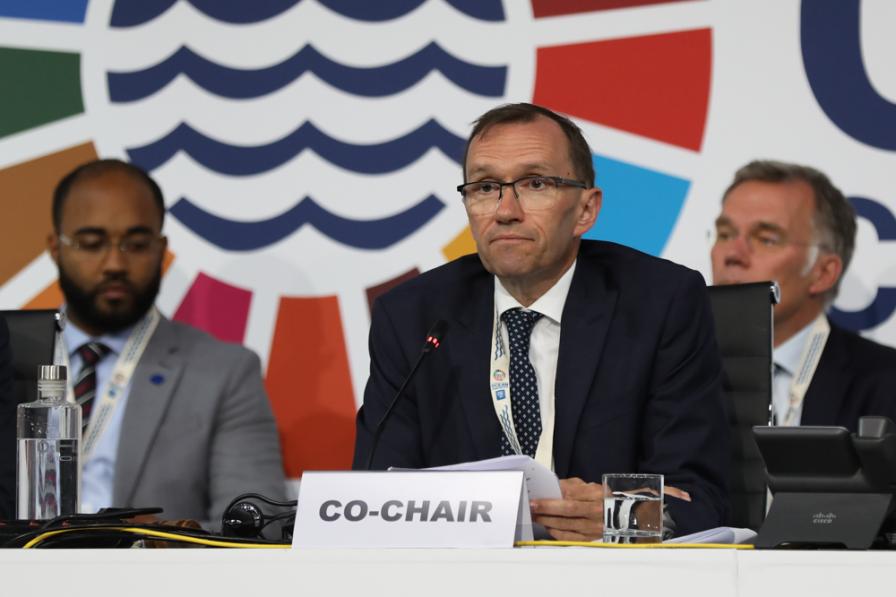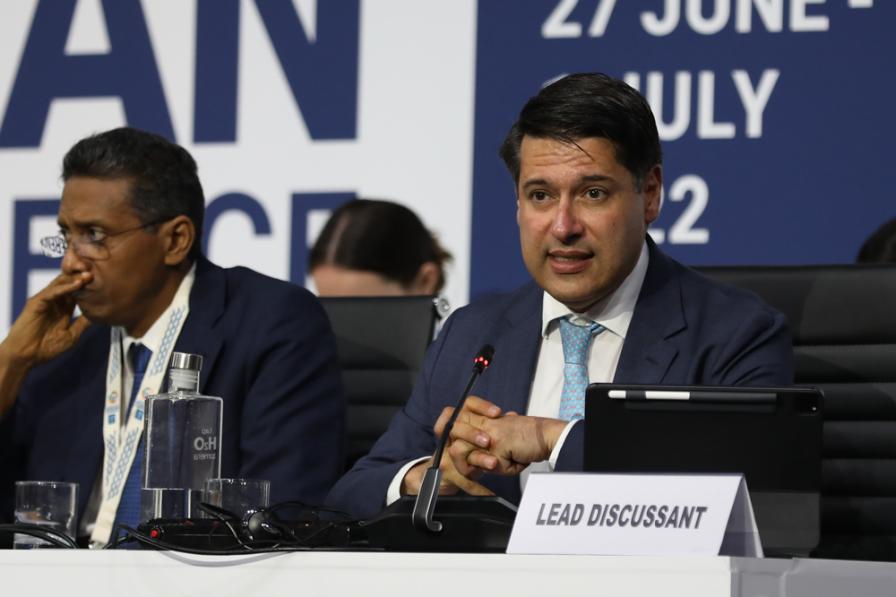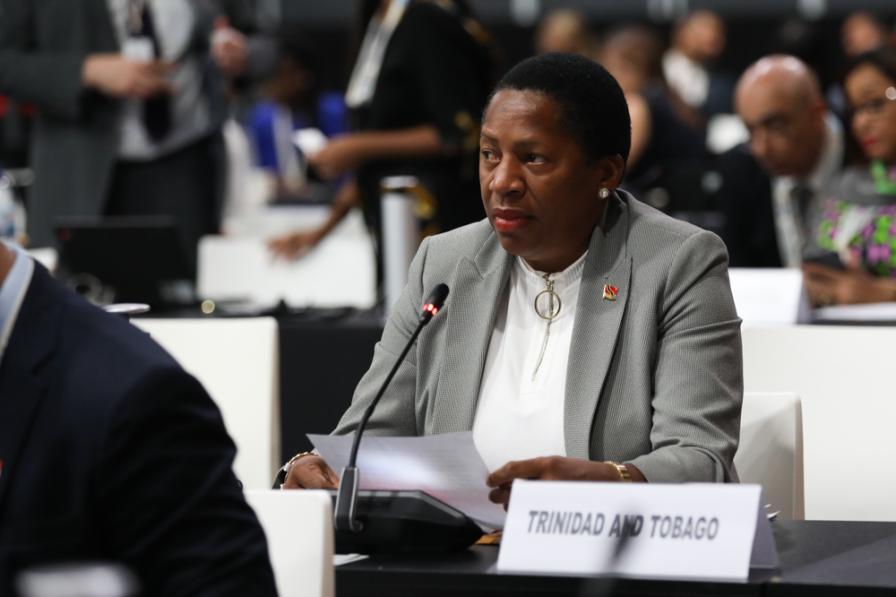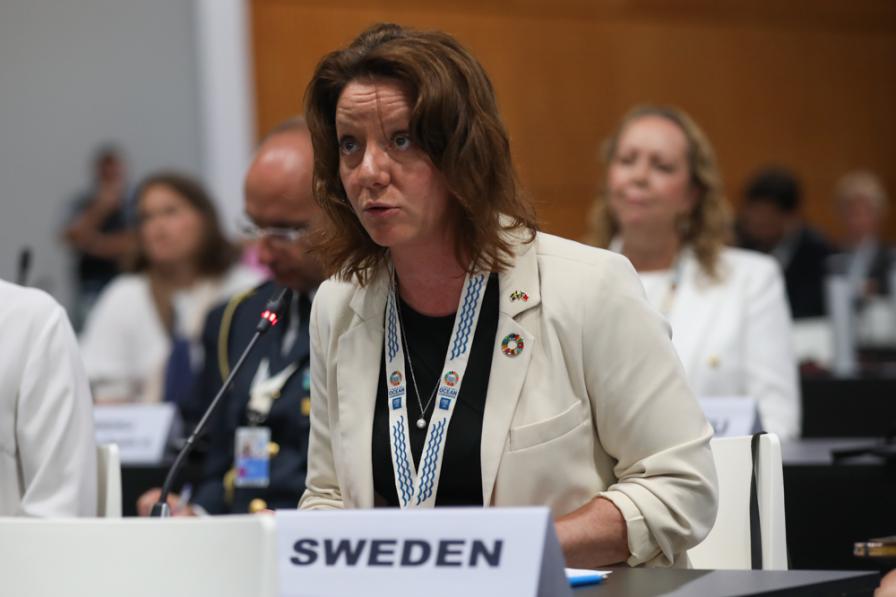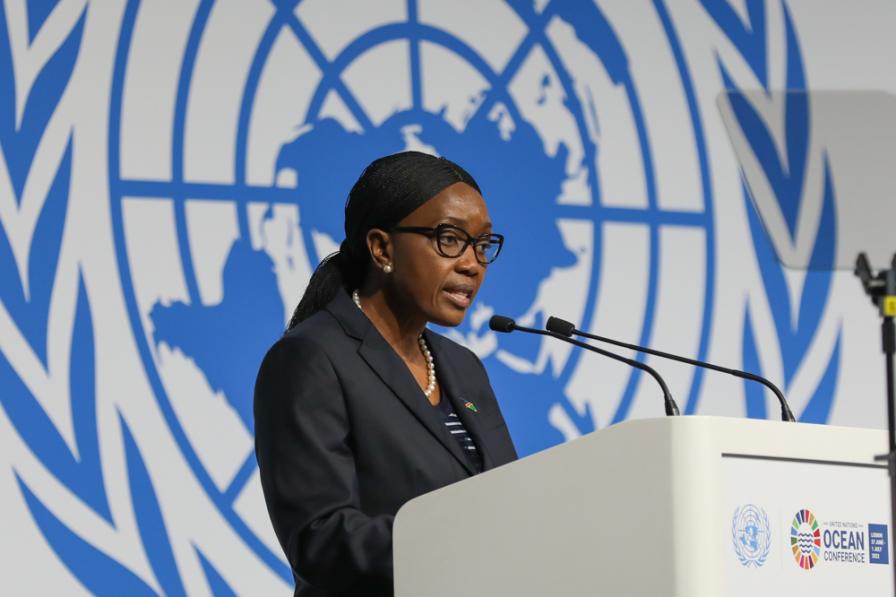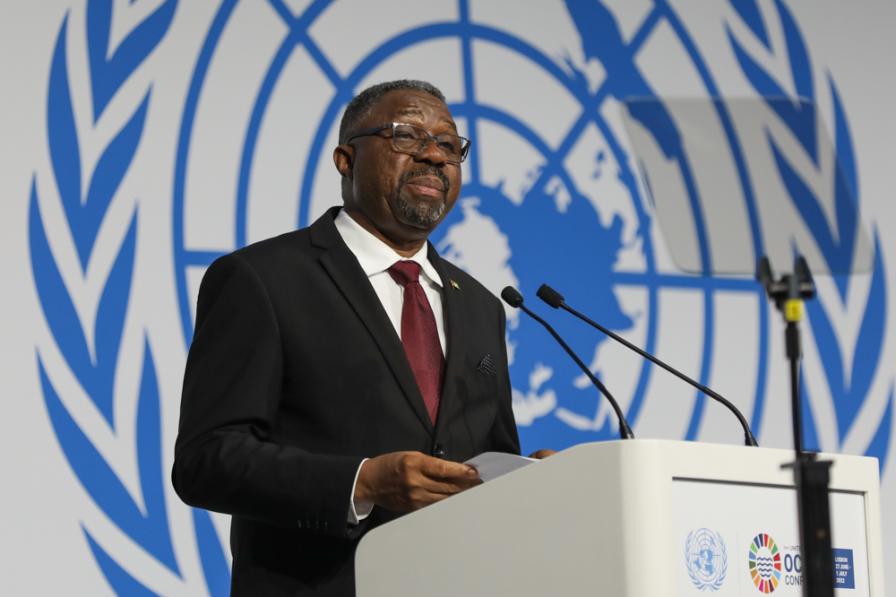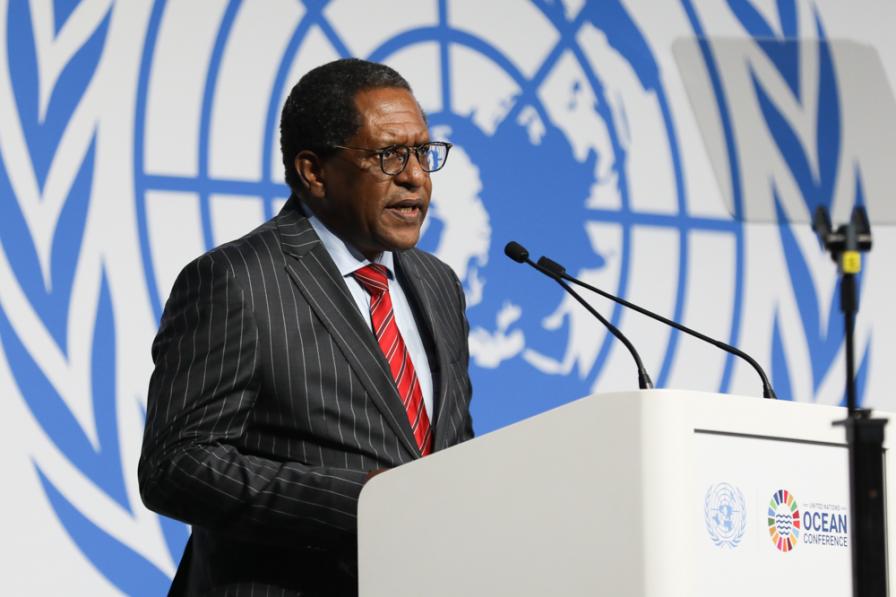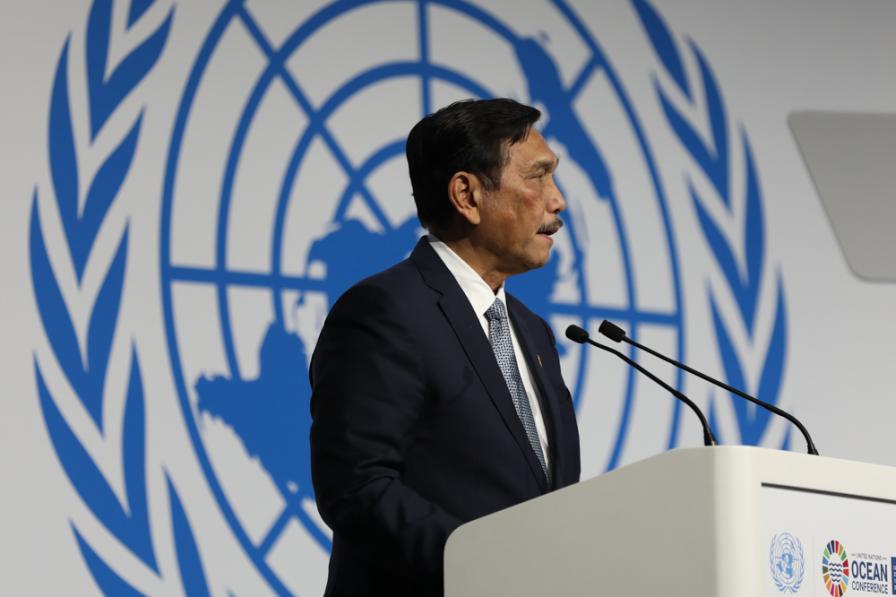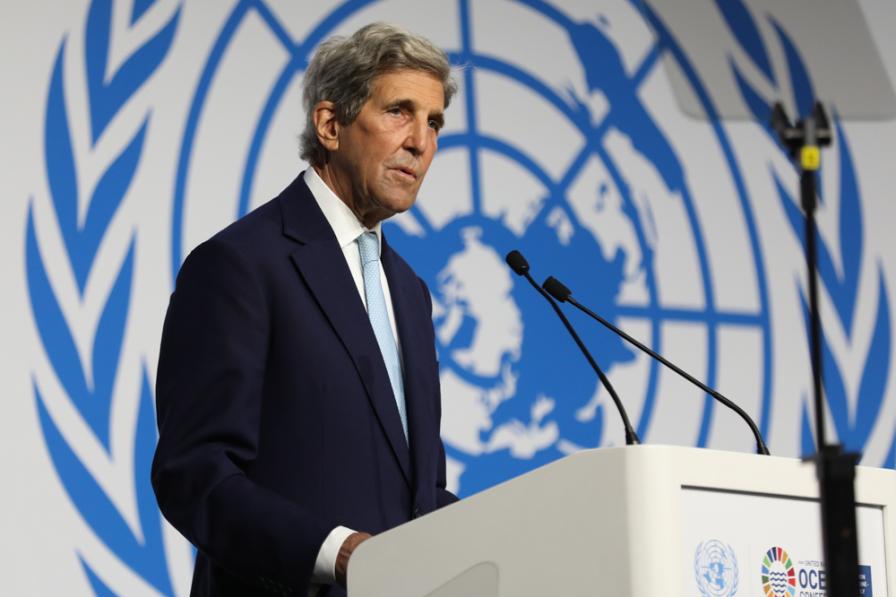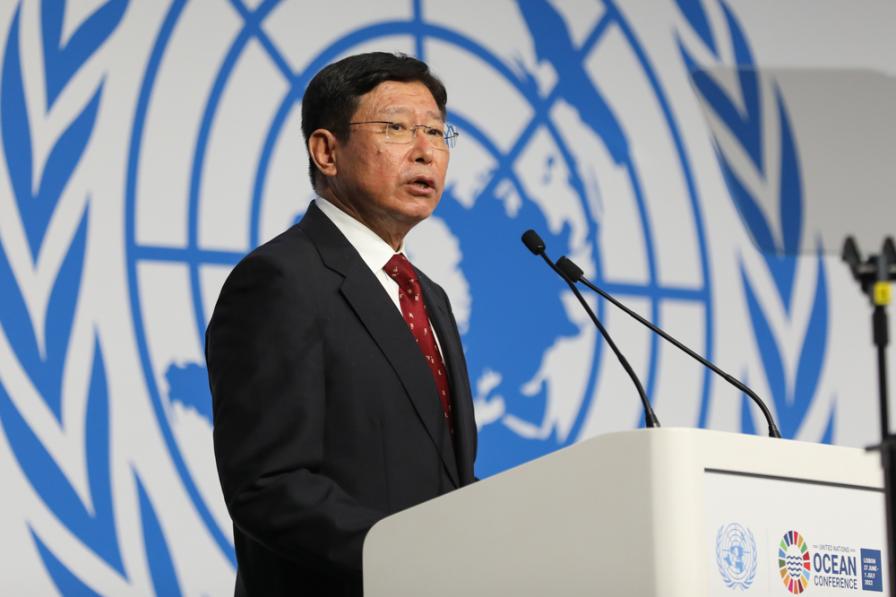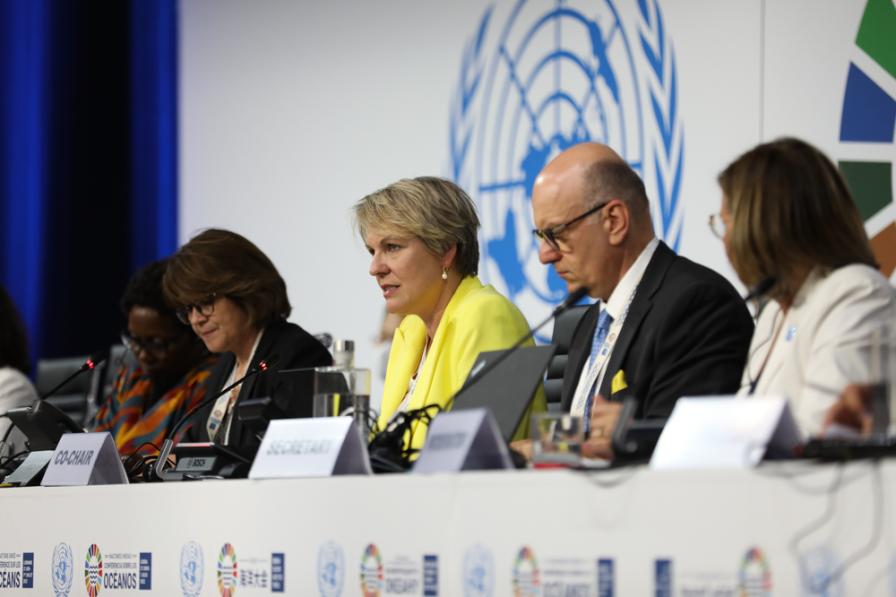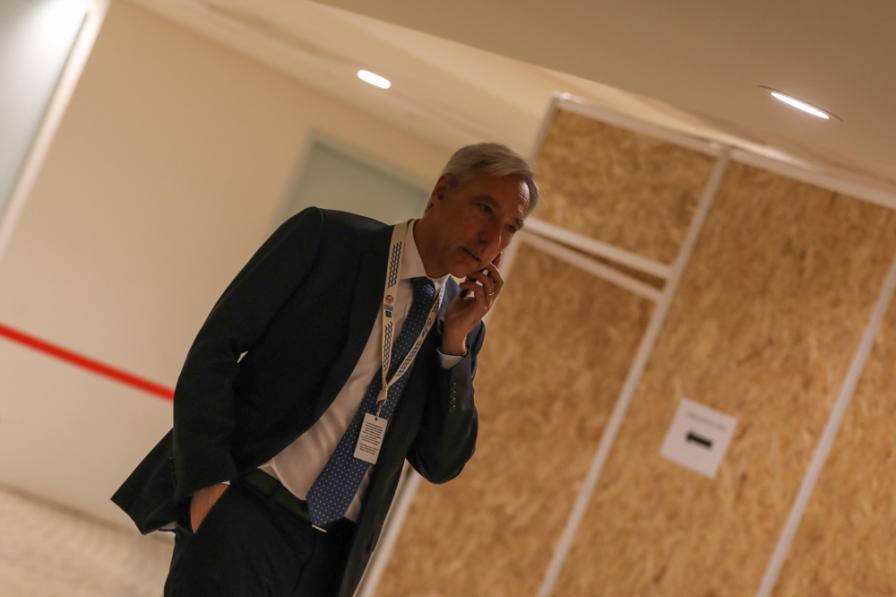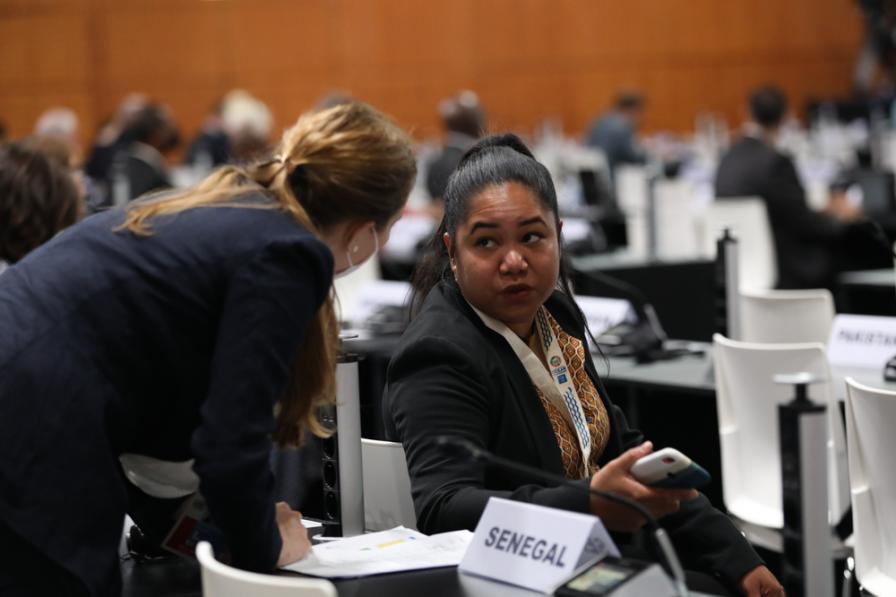On Tuesday, delegates at the second UN Ocean Conference split their time between the general debate in plenary, and two interactive dialogues that convened in parallel to the plenary discussions.
During the general debate, there was renewed support for the swift conclusion of negotiations on the conservation and sustainable use of marine biodiversity of areas beyond national jurisdiction (BBNJ), as well as further support for speedy negotiations of a new treaty on plastic pollution. A number of countries registered new voluntary commitments, while several others shared ongoing challenges related to lack of financial, technical and legal support for ocean action.
To dive deeper, read the full Earth Negotiations Bulletin daily report.
In the first interactive dialogue on promoting and strengthening sustainable ocean-based economies, in particular for small island developing states (SIDS) and least developed countries (LDCs), delegations struck a delicate balance between frustration and hope. Several delegations, particularly SIDS and LDCs, expressed their frustration at the slow pace of ocean action, with many noting that the time for action is now. The Pacific Island Forum, for instance, stressed that their governments do not need scientific reports telling them that the ocean is at risk, further stressing that, “we can see it and feel it; the ocean crisis is coming.”
On the other hand, some delegations showcased progress towards achieving sustainable ocean-based economies, with Ireland, for instance describing commitments of almost USD 10 million to address impacts of sea-level rise, drinking water, and coastal erosion.
In the second interactive dialogue on managing, protecting, conserving and restoring marine and coastal ecosystems, delegates mainly focused on sharing initiatives, actions and plans undertaken within their countries, and some made recommendations on initiatives towards the protection and sustainable use of marine ecosystems. With the understanding that the ocean is a shared resource, one common view among delegates was the need for coordinated and cooperative action by all stakeholders.
Tuesday’s Voluntary Commitments
- European Investment Bank will extend an additional EUR 150 million across the Caribbean Region as part of the Clean Oceans Initiative.
- Aruba will expand their marine park to an island-round marine protected area.
- Belize will protect 30% of their marine area by 2030.
- Ireland announces a package of almost EUR 10 million for funding of ocean initiatives.
- Ocean Risk and Resilience Action Alliance announces a multimillion-dollar global search for the next generation of projects to build resilience of coastal communities and finance through finance and insurance products.
- Peru pledges to submit 19 voluntary contributions, including efforts in aquaculture, and ocean acidification.
- US, Canada and the UK launch the IUU (illegal, unreported and unregulated) Fishing Action Alliance.
- China pledges to launch 31 marine ecological preservation and restoration projects in the next five years and provide assistance to developing countries, especially SIDS, through the One Belt One Road initiative.
- Netherlands will incorporate the Wadden Sea into a well-connected trans-European network of marine protected areas (MPAs) and work towards restoring hundreds of square kilometres of biogenic reefs.
- Kenya is currently developing a national blue economy strategic plan, and a national action plan on sea-based marine plastic litter.
- Thailand announces a voluntary commitment on observation and research in response to ocean acidification.
- Namibia will allocate USD 5 million annually to conduct research, control, monitoring and surveillance in marine ecosystems.
- US and Norway announce a Green Shipping Challenge for the 27th meeting of the Conference of the Parties to the UN Framework Convention on Climate Change (UNFCCC COP 27).
- Singapore will launch research initiatives on tracking fish populations, using solar energy to spur coral reef growth and on marine impacts of climate change.
- India commits to a Coastal Clean Seas Campaign and will work toward a ban on single use plastics, beginning with plastic bags.
- Argentina is currently considering a law to double its MPA area and expand wetlands protection.
- Spain announced a commitment to protect 30% of their marine area by 2030.
All ENB photos are free to use with attribution. For the 2022 UN Ocean Conference, please use: Photo by IISD/ENB | Kiara Worth.
To receive free coverage of global environmental events delivered to your inbox, subscribe to the ENB Update newsletter.
Interactive Dialogue: Promoting and Strengthening Sustainable Ocean-based Economies, in Particular for Small Island Developing States and Least Developed Countries

Delegates gather for the interactive dialogue on promoting and strengthening sustainable ocean-based economies
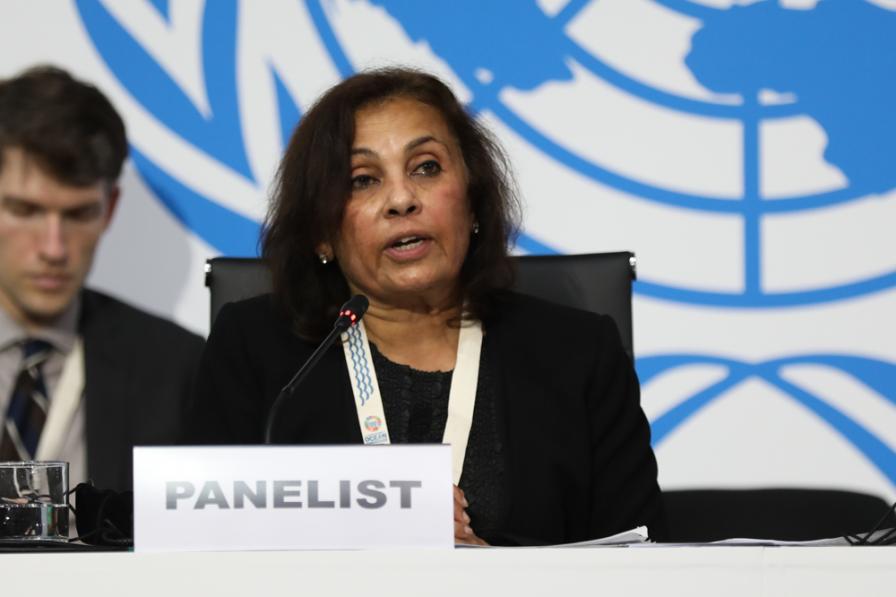
Usha-Rao Monari, Under-Secretary-General and Associate Administrator, UN Development Programme (UNDP)
